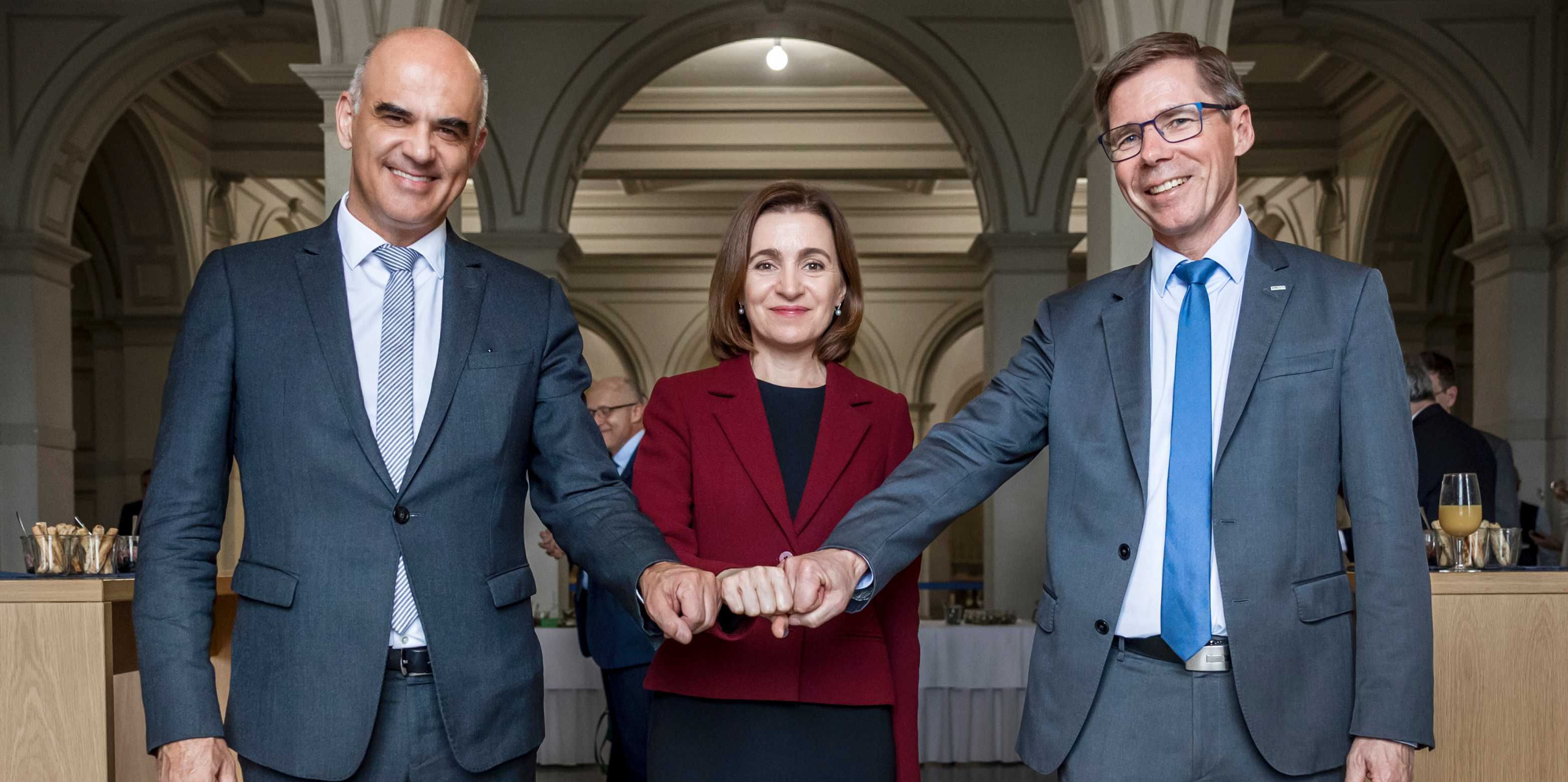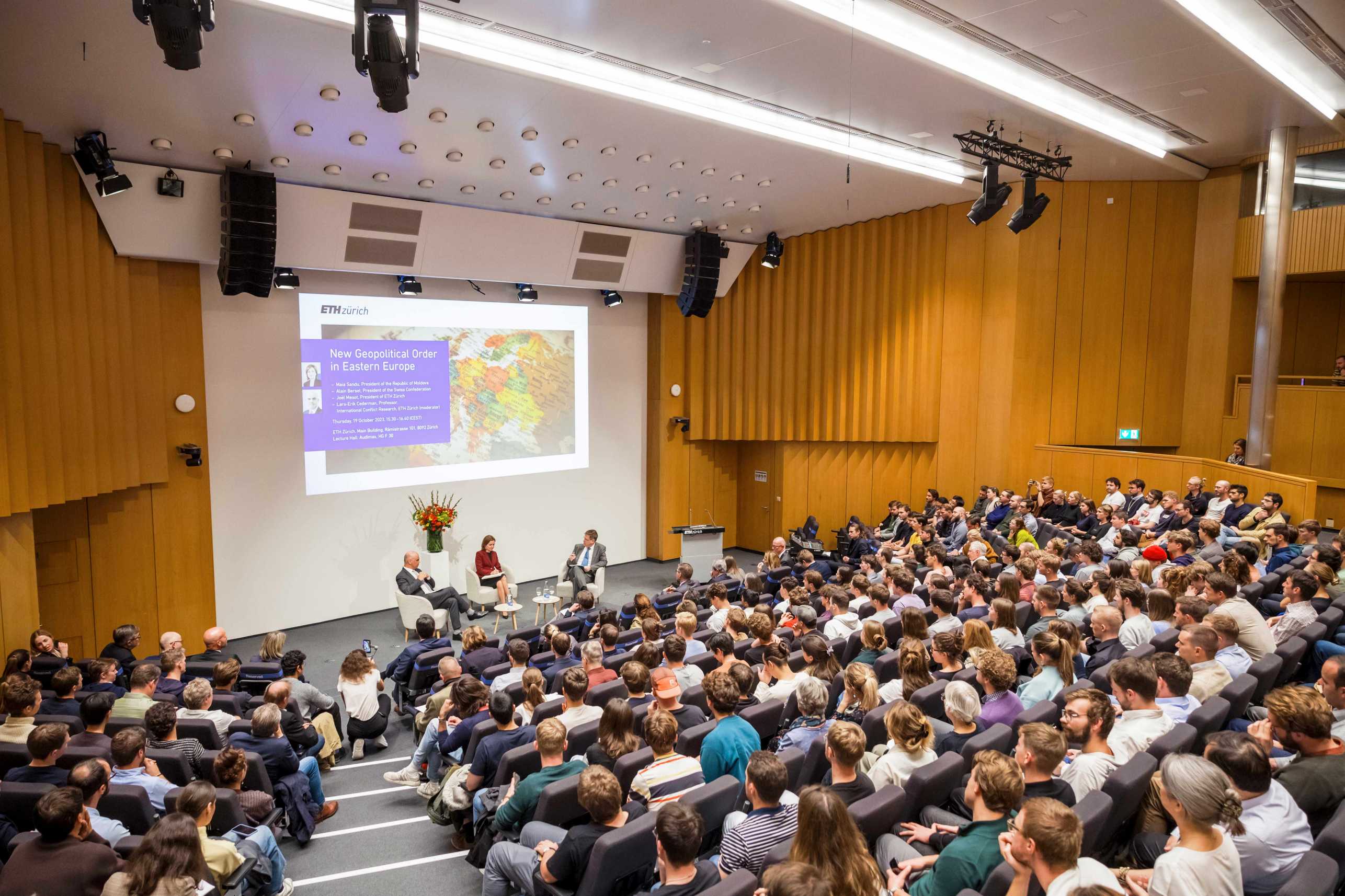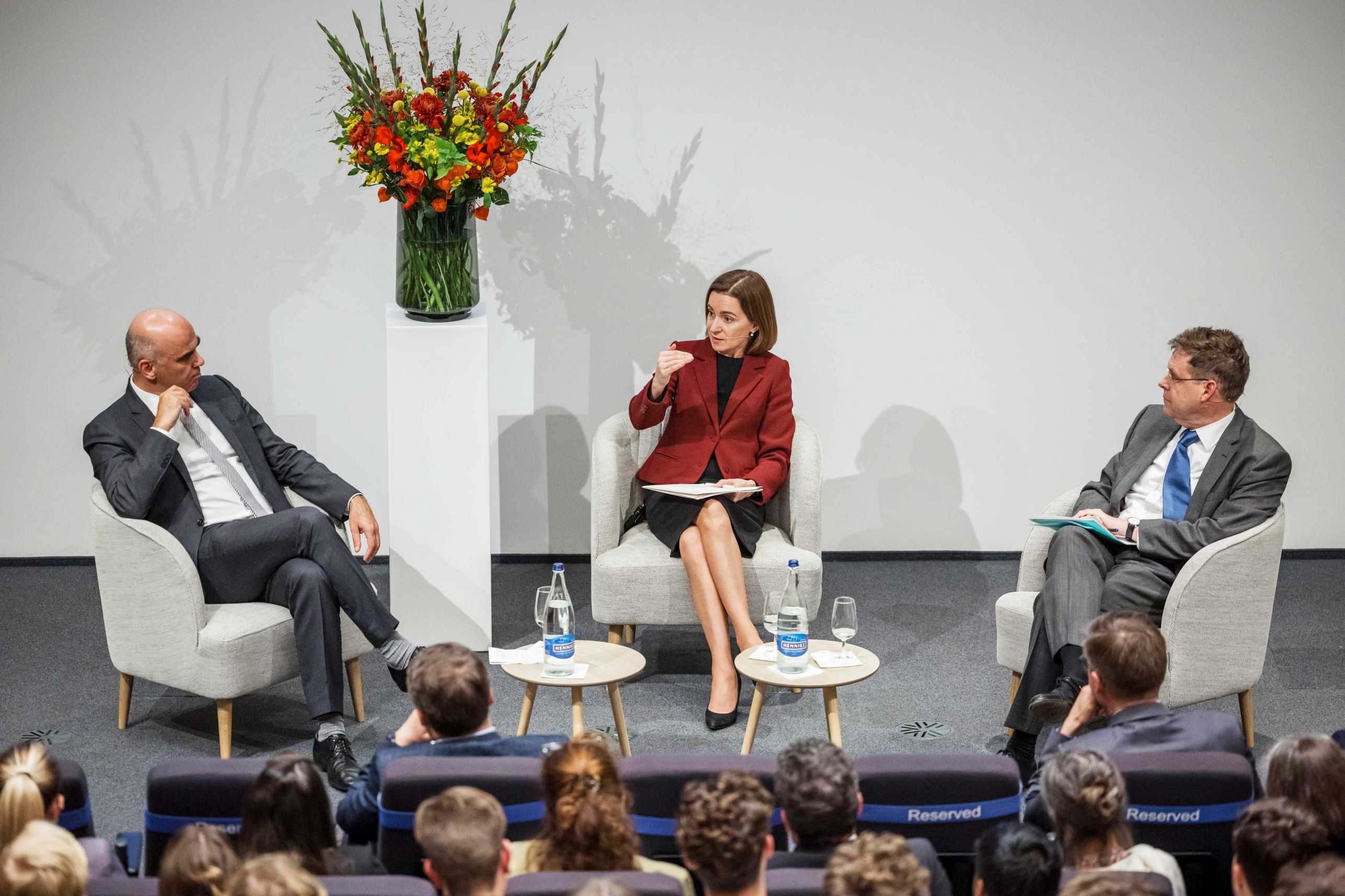
Moldovan President visits ETH Zurich
Nothing less than the future of the democratic world was the topic of the visit of Moldovan President Maia Sandu to ETH Zurich. Together with Alain Berset, President of the Swiss Confederation, she took part in a panel discussion in the Audi Max yesterday.
The event at ETH Zurich was part of the Moldovan president's two-day official visit to Switzerland. After talks on bilateral cooperation, Maia Sandu travelled to the university accompanied by President Alain Berset to talk about Moldova's role in the broader geopolitical context of Eastern Europe and the impact of Russia's war of aggression on Ukraine. This was followed by questions from students.
Highly topical subject
The esteemed guests were welcomed by Joel Mesot, President of ETH Zurich, who greeted them in a packed Audi Max. While ETH Zurich is best known for its engineering and natural sciences, Mesot said in his welcoming speech, the university also conducts research in the area of international security policy and advises the Swiss authorities. "In the face of global challenges, science can and must be a positive force to foster prosperity and a peaceful co-existence," the ETH president stressed.

Impact of the war in Ukraine
The difficulty of peaceful co-existence in the current geopolitical situation was made clear in both Alain Berset's and Maia Sandu's speeches. "I admire the determination with which Moldova is defending its independence and strengthening its ties with the EU," Berset said. He added that Russia's attack on Ukraine had had a major impact on neighbouring Moldova.
This was confirmed by Maia Sandu. At the beginning of the war more than one million people initially fled from Ukraine to Moldova with its 2.6 million inhabitants. Around 80,000 refugees are still living there today. Only with the support of the entire population was it possible to master this situation. In addition, Russia is trying to undermine their democratically elected government through disinformation and by cutting off gas supplies.
Fight of two ideologies
According to Moldova's president, the war in Ukraine is not just about winning territory, but is also an ideological fight. "It is a battle between an authoritarian system that wants to impose its goals by force and the free democratic world." While democracy is not perfect either, "it is the best we have." Moldova, she said, belongs to those states in Europe that live in a democracy, which is why it aspires to join the EU by 2030.
For democracy to exist in the future, however, she believes that it is not enough to rely on agreements. She said that prosperity, security and economic development were needed to win people over to democracy. Berset agreed. The advantages of democracy must be made clear again and again. Even in Switzerland, he said, democracy should not be taken for granted.
“Democracy is not perfect, but it is the best we have.”Maia Sandu, Moldovan President
Attack on democracy
"Democracy itself is under attack," was also Lars-Erik Cederman's assessment of the current geopolitical situation. The head of ETH's International Conflict Research Group moderated the lively panel discussion that followed the speeches. Among the topics discussed was how the Transnistrian issue might affect Moldova’s EU accession.

Maia Sandu reported that there was currently some rapprochement between this strip of land, which is ruled by a Russian-controlled government, and the Republic of Moldova. She added that the better economic opportunities offered by Moldova and Europe and the prospect of living in peace were driving this process. Asked whether the country was seeking membership of NATO in addition to joining the EU, Sandu replied in the negative. In accordance with its constitution, Moldova maintains its status as a neutral country.
Other topics included the influence of social media on political processes, the large Moldovan diaspora of around one million people, and the search for alternatives to Russian gas for the country's energy supply. It became clear that the current Moldovan government under Maia Sandu was trying to involve as many people as possible in all these issues and thereby establish democratic processes. A reduction in corruption and improved freedom of the press are part of this, even at the cost of opening new gateways to Russian propaganda.
